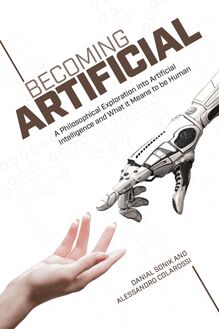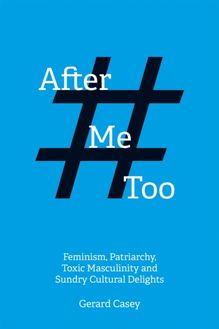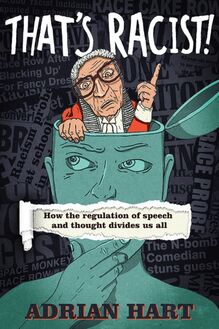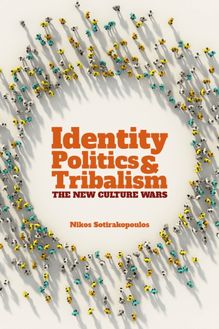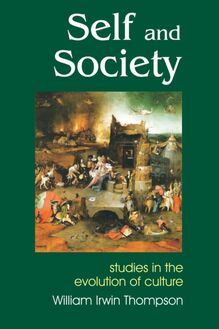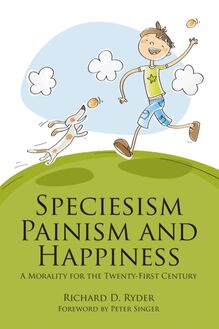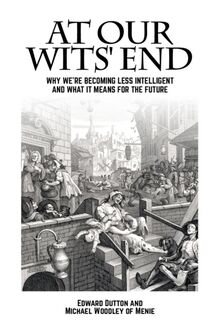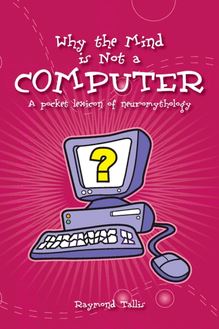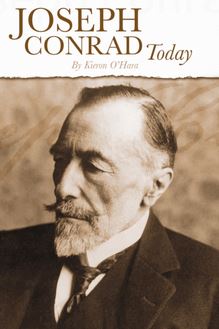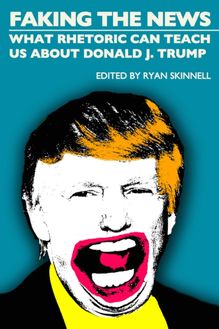Knowledge Monopolies , livre ebook
68
pages
English
Ebooks
2016
Vous pourrez modifier la taille du texte de cet ouvrage
Obtenez un accès à la bibliothèque pour le consulter en ligne En savoir plus
Découvre YouScribe en t'inscrivant gratuitement
Découvre YouScribe en t'inscrivant gratuitement
68
pages
English
Ebooks
2016
Vous pourrez modifier la taille du texte de cet ouvrage
Obtenez un accès à la bibliothèque pour le consulter en ligne En savoir plus
Publié par
Date de parution
22 juin 2016
Nombre de lectures
0
EAN13
9781845405229
Langue
English
Publié par
Date de parution
22 juin 2016
Nombre de lectures
0
EAN13
9781845405229
Langue
English
Title page
Knowledge Monopolies
The Academisation of Society
Alan Shipman & Marten Shipman
SOCIETAS
essays in political
& cultural criticism
imprint-academic.com
Publisher information
2016 digital version converted and published by
Andrews UK Limited
www.andrewsuk.com
Copyright © Alan Shipman & Marten Shipman, 2006, 2016
The moral rights of the author have been asserted.
No part of any contribution may be reproduced in any form without permission, except for the quotation of brief passages in criticism and discussion.
Imprint Academic, PO Box 200, Exeter EX5 5YX, UK
*
Marten Shipman is a retired teacher and sociologist, formerly at the Universities of Keele, Warwick and Surrey (Roehampton) and Director of Research and Statistics in the Inner London Education Authority. He is the author of several books and reports, including The Limitations of Social Research (Longman).
Alan Shipman is a freelance writer and economist, formerly at the National Institute of Economic & Social Research and the Economist Intelligence Unit. His publications include The Market Revolution and Its Limits (Routledge).
Introduction
Contemporary concerns over higher education are usually focused on numbers and costs. Less attention is paid to the concentration of knowledge production, validation and transmission within academia. Yet the authority of church and state, community and family has been largely replaced by the academic, profoundly altering the nature of knowledge and its impact on society. This book charts the improbable rise of the academic empire, the tactics that sustained its growth, its impact on the nature and uses of knowledge, and the likely outcome of the battle for survival caused by its spectacular growth and consequent exposure to new economic and political pressures.
The natural sciences’ challenge to belief in a 4,000-year-old Earth, an orbiting sun, spontaneous generation, witchcraft, ghosts and luminiferous ether is well documented. Social sciences’ equally spectacular social impact is less comfortably addressed by practising academics, since it admits the reflexivity of the enterprise: engaged researchers influencing as well as being influenced by what they study, helping to define and transform the world they set out only to reveal. Across the twentieth century the social sciences have become major parts of the curriculum in schools and higher education. They have changed our understanding of our selves, relationships and beliefs. Increasingly we think in terms of the economic , psychological and social. We assume that there is knowledge of our everyday lives together, validated by academics, reliable enough to guide policy, practice, everyday belief and behaviour. With the academisation of knowledge, social scientists need to consider the implications of their success in providing the way humans make sense of their world.
In Chapter 1 of this book we review universities’ expansion as research institutions through their capture of previously independent scientific effort, and their expansion as teaching institutions through the absorption of professional accreditation. Chapter 2 outlines the ways academics acquired, on the basis of reason and research, the unconditional authority previously wielded mystically by priests or mythically by charismatic rulers; changes to the status of knowledge, and the use of peer review to reinforce its internal validation, are identified as especially important to successful academisation. Chapter 3 examines the changes to the organisation of knowledge, and of knowledge-creating activity, that have enabled the academy to multiply the scale of its research and teaching activities while strengthening its control over the process , and the authority over society that this control provides.
The reinvention of knowledge as something exclusive to the academy, and universities’ ability to engender and enter ‘ knowledge society’ without losing authority over it, rests on its ability to reconceptualise the world through models, the theme of Chapter 4. The shift from perception of ourselves and our world as something constructed, not retrieved from past records or even revealed from ‘objective’ observation, took previous limits off natural science and led to the creation of social science, as chronicled in Chapter 5. The occasionally advantageous, and not infrequently disastrous, impact of model-based creation and professional application of academised knowledge is examined in Chapter 6. With increasing specialisation straining their ability to control the interpretation and application of knowledge, and increasing scepticism over universities ’ exercise of their knowledge monopoly driving calls for tougher external regulation, Chapter 7 argues that it is more than just the shrinkage of public funding that puts today’s academy under pressure to take up lessons from the business world. Chapter 8 draws conclusions on how the academy can regain the direction and dialogue endangered by its relentless specialisation, and the legitimacy lost in its imperfect transition from exclusivity to social engagement.
1. The Omnivorous Academy
Europe pioneered the modern university, with those at Bologna, Oxford and Paris already established in the twelfth century. But by the mid-19 th these ancient models were showing their age, viewed more often as roadblocks than as gateways to the industry and democracy taking shape around them. The academy’s inability to promote radical new thinking, and reluctance to adopt it, had pushed other institutions to the centre of knowledge, culture and administration. Its imposition of an ‘academic’ curriculum was seen as frustrating upward mobility by putting a second-class stamp on technical and vocational education.
The twentieth century brought a spectacular turnaround. Universities ’ research eclipsed the authority of the religious, familial and traditional, and their teaching became the near-universal third stage of popular education as living standards rose. The causes and consequences of this ‘academisation’ of knowledge are often buried beneath problems arising from the increased numbers, as up to half of school leavers are channelled into higher education institutions still only organised and resourced for much lower proportions. These organisational problems obscure, but ultimately relate to, simultaneous changes in academia as an institution and in its production , validation and application of knowledge. Academic concepts become everyday meanings. The increasing numbers matter, but it is academia as a key but taken for granted institution that is changing our knowledge of the world and the way we make our lives meaningful.
Back from the Dead
Universities’ early history, especially in their European birthplaces, makes their later marginalisation unsurprising. The academy had only ever educated a tiny minority - mostly in theologies that discouraged the search for any undiscovered truth. As late as 1950 only one UK school-leaver in twenty could expect to find a place at university . As a knowledge creator, the modern academy had emulated the medieval monastery in defending scriptures that encouraged leaps of faith, but looked askance on more reasoned acts of imagination. Early displays of free enquiry by Oxford scholars Roger Bacon (1219–94) and Thomas Hobbes (1588–1679) were soon blotted out by the valedictory smoke of those on the wrong side of the Reformation debates. Most of the pathbreaking natural science discoveries that reshaped Europe in the 16 th Century were made outside universities, in private laboratories and discussion rooms. From Leonardo da Vinci (1452–1519) and Galileo Galilei (1564–1642) to Charles Darwin (1809–82) and Sigmund Freud (1856–1939), the academy proved neither a relevant location for natural enquiry nor a safe haven when it offended prevailing religious values. Its paucity of places and propensity to assign them on respectability of background rather than strength of mind ensured that most pathbreaking scholarship took place beyond its walls.
The few universities then in existence perpetuated an Aristotelian view of the world: axiomatic, static and geocentric. Escape from this framework was often easier in the guise of a royal tutor (Hobbes), a mercenary (Descartes) or a lens-grinder (Spinoza) than as a wanderer in the college gardens. In France, economics had its first stirrings in the physiocratic theories of Quesnay (1694–1774), a surgeon, and Turgot (1727–81), Louis XVI’s finance minister. Both contributed to the Encyclopedie , published between 1751 and 1772, most of whose other illustrious contributors - including Diderot (1713–84), Rousseau (1712–78) and Voltaire (1694–1778) were dramatists , novelists, journalists, social commentators, political agitators , but noticeably not academics.
Most of today’s recognisable sciences (the term slowly replaced ‘natural philosophy’ from around 1830) were founded outside universities . The Royal Society had been mainly a club of friends, patrons and interested gentlemen amateurs. Its efforts to make members share and publish their results were often hampered by personal or commercial rivalries, such as the long stand-off between leading mind Isaac Newton and secretary Robert Hooke; publication was more usually in magazines such as the Quarterly Review or the Edinburgh Review . The nascent ‘knowledge society’, diffusing its ideas so they could be deployed for practical advantage, reacted against an institution that had traditionally confined knowledge to an elite, and detached its intrinsic worth from social values or economic value.
Yet by 1950 this moribund, outmoded institution was about to enter the most sustained and spectacular growth of any social institution . By the end of t

